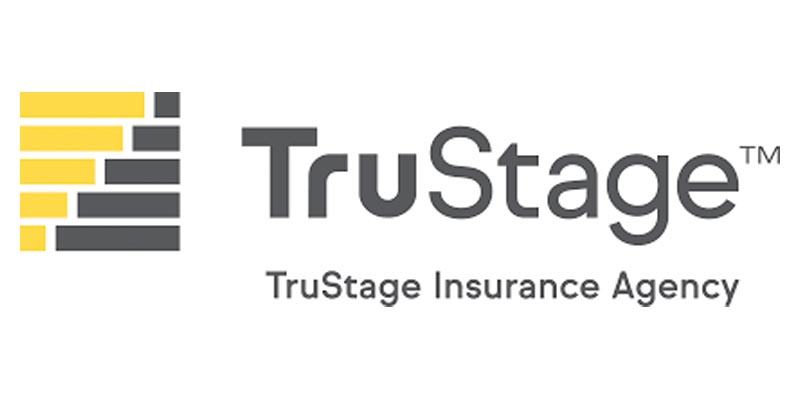Do I Qualify for Life Insurance? Here’s What to Know
Updated:
Retirement Living takes an unbiased approach to our reviews. We may earn money when you click a partner link. Learn More

About 52% of Americans have some individual or workplace life insurance, according to data from LIMRA. Life insurance is a contract where you, the insurer, pay a premium that guarantees payment to your beneficiaries when you pass. Many use life insurance as financial security for their partners, families, or businesses.
To get a life insurance policy, you must meet the eligibility requirements established by various life insurance providers. Your ability to meet these requirements determines whether you’ll be approved for coverage.
Here’s what you need to know about qualifying for life insurance.
Life Insurance Eligibility Requirements
There are several steps involved in applying for a life insurance policy. Ultimately, the first step is to meet the eligibility requirements, which can vary depending on what company and coverage you’re applying for.
Below are the most common life insurance requirements:
Medical Requirements
- Medical exam: A medical exam may be required to qualify for life insurance. During a life insurance medical exam, a physician may measure your height and weight for your body mass index (BMI) and possibly facilitate an electrocardiogram (EKG), X-ray, or treadmill stress test. You may also complete a questionnaire about your health.
- Medical conditions: You’ll list your medical conditions, including dates of diagnoses, treatment, treatment outcome, and contact information for the treating physician(s). It’s important to be honest about your pre-existing medical conditions, as the insurance company will verify these records.
- Medications: Your prescription drugs may impact the quotes you receive for a life insurance policy, so it’s crucial to provide details for all your medications. You’ll have to list the names and dosages of current and past medications.
- Family medical history: You’ll disclose if any immediate family members, such as your parents or siblings, have been diagnosed or treated for chronic diseases like heart disease, stroke, cancer, or other conditions.
Age Requirements
- Age limit: There’s no minimum age requirement to apply for life insurance, though some may require people to be at least 18. However, most life insurance providers won’t issue a policy to people 80 and older. The age limits vary with each life insurance company.
- Term limitation: Your age may determine your term limits. For example, you may not be eligible for a 30-year term life policy if you’re older than 55. Yet, this may change depending on the life insurance provider and the policy.
Looking for life insurance as an older adult? Read our best life insurance for seniors buying resource.
Lifestyle Requirements
- Tobacco: Life insurance providers can categorize you as a smoker or non-smoker. Smoking cigarettes, cigars, vape products, or chewing tobacco are all considered regarding your eligibility for certain life insurance policies. To be considered a non-smoker, you must be nicotine-free for at least a year.
- Alcohol consumption: Your current alcohol consumption, including the frequency and if your medical conditions are a result of your alcohol use. In addition, companies may ask whether you’ve received addiction treatment and if you’ve received any DUIs.
- Drug use: They’ll ask whether you have experience with hard drug use, such as cocaine, heroin, or methamphetamine. If these drugs are listed on your application, you may be required to complete a medical exam or provide additional information before a policy is issued.
- Employment: In most circumstances, being unemployed won’t affect your eligibility for life insurance. However, unemployment may cause an insurance provider to look at your application more rigorously, leading to a lengthier process.
- Risky hobbies: Life insurance providers define any hobby or activity as “risky” if it increases your chances of injury or death. Some examples include scuba diving, skydiving, and mountain climbing. These high-impact hobbies may affect your eligibility or policy rates.
- Driver’s license and driving record: In addition, they will order a copy of your Motor Vehicle Report (MVR) for driving violations. Reckless driving can lead to deadly accidents, making some companies more hesitant to offer coverage.
Financial Requirements
- Income and net worth: No specific income or net worth requirements exist to obtain a life insurance policy. However, you’ll want a ballpark number for your life insurance coverage. One of the best methods to determine this is with a life insurance needs calculator. This tool considers your annual income, debts, college funds, emergency funds, and other costs to figure out how much life insurance you need.
- Asset threshold: Jumbo life insurance is a policy of significantly high value, typically greater than $10,000,000. If you have Medicaid, you may have difficulty qualifying for life insurance with jumbo coverage and other policies based on your income threshold.
In addition to these factors, life insurance companies may also review the following before issuing a policy:
- Your public records
- Any properties you own
- Your credit
- Your social media accounts
- Any third-party financial statements, such as tax returns
Qualifying for Life Insurance With Health Conditions
If you have pre-existing medical conditions or don’t want to do a medical exam, you may still qualify for certain life insurance policies.
Two types of life insurance may issue a policy for pre-existing medical conditions or have no medical exam requirements: simplified issue and guaranteed life insurance.
Simplified life insurance doesn’t require a medical exam and has a quick application process where you can be approved within minutes. However, this policy is more expensive and the insurance provider may still inquire about your age, medical history, and hobbies to determine eligibility.
Also known as final expense life or guaranteed issue life insurance, guaranteed life insurance doesn’t require a medical exam, nor does it ask any health questions. You are guaranteed acceptance for this policy type if you’re between 50 and 80 years old. If you’ve been denied other policies due to medical conditions, this life insurance may be a good option to ensure coverage.
While this life insurance policy has a fast approval rate, it has lower coverage amounts, with many providers not offering more than $25,000.
The qualifications for life insurance vary depending on the company and the policy itself. For example, if you wanted term life insurance (temporary coverage for set periods), you’d have to take a medical exam and submit your medical history to be considered for eligibility. On the other hand, guaranteed life insurance doesn’t require any exams or medical history to be approved for a policy, but you may not get the coverage you want.
Knowing what you’re looking for in a life insurance policy is important to ensure you get the right one for your needs.
Compare Top Life Insurance Companies
What Disqualifies a Person from Life Insurance?
It is crucial to understand what disqualifies you from life insurance. Here are the common reasons why you may be denied life insurance:
Serious Pre-existing Conditions
Because of the added risk of health problems, some insurance providers hesitate to approve applicants with pre-existing health conditions. A few examples of conditions that life insurance policies may deny are cancer, hypertension (high blood pressure), diabetes, cancer, and asthma.
Smoking
Many life insurance providers consider smoking or any form of tobacco use to be a disqualifier for health insurance. This is mainly due to providers seeing tobacco use as a proven health risk that can lead to serious health problems.
High-risk Activities
Certain activities life insurance companies can deem too “high-risk” for policy eligibility. Hazardous activities can include BASE jumping, bungee jumping, horse riding, flying a plane, and similar activities.
In addition, an insurance provider may consider certain jobs, like construction work, underground mining, and logging, too dangerous for a life insurance policy.
Age
Your age may affect your eligibility for a life insurance policy. Many insurance providers will typically deny applications for insurers ages 80 and up. This is because as you get older, you’re at an increased risk of health problems.
Alcoholism
If you have alcohol dependency issues, you may be disqualified for life insurance. Excessive alcohol consumption, which the Centers for Disease Control and Prevention (CDC) defines as 8 to 15 drinks per week, may lead to various health and behavioral problems. This increases the insurance company’s risk of insuring you.
Criminal Record
It is possible to be denied life insurance coverage if you have recent or violent crimes or felonies or a history of criminal behavior. And if you’re in the process of being charged with a crime or felony, you may not be able to get a policy until the trial commences or the case is dismissed.
It’s important to mention that while these factors can disqualify you from most life insurance policies, some providers may insure you. However, you may face higher premiums because of your medical and personal history.
Appealing a Life Insurance Denial
You can file an appeal if you feel you were wrongly disqualified for a life insurance policy based on incorrect or insufficient medical information or other issues. To start the appeal process, talk to the life insurance agent or broker to review the application and submit an appeal promptly with complete and up-to-date information. You can look into other life insurance policies to avoid the appeal process entirely.
How to Improve Your Life Insurance Rate and Eligibility
Applying for a life insurance policy can be a tedious process that you likely won’t want to do several times.
To increase your chances of eligibility and affordable rates on your first attempt, here are some tips for applying for life insurance:
- Try maintaining a healthy weight: Policyholders with the preferred BMI are likelier to meet life insurance qualifications and pay lower premiums.
- Keep pre-existing medical conditions in check: While you can’t change what you’ve been diagnosed with, you can take the initiative to stay up-to-date with doctors’ visits and medications. Being responsible for maintaining your health can reflect well on a life insurance policy.
- Try to quit smoking: If you’re a smoker, quitting before applying for life insurance may increase your chances of approval. Smokers tend to pay higher premiums, so if you quit within 12 months or so before applying, you may get better rates.
- Keep a clean driving record: Do your best to avoid reckless driving. Safe drivers tend to have lower premium rates than those with a poor driving record.
- Browse around: Don’t feel like you have to settle for the first life insurance policy you come across. Take your time to research companies and speak with agents to find the right coverage for you.
Learn more: Who Should Be Your Life Insurance Beneficiary?
Bottom Line
The life insurance application process can be strenuous, but it can help you and your family in the long run. Understanding the ins and outs of life insurance eligibility is crucial so you won’t waste time applying for policies that may deny you. If you need assistance, work with an independent insurance or consultant or speak with your financial advisor.


